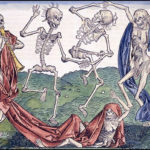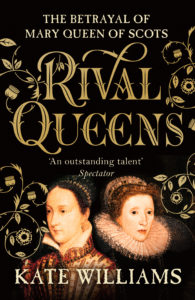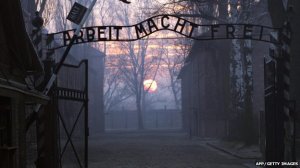 Following on from today’s lesson, the following pages help us understand what the English Sweat or the Sweating Sickness was.
Following on from today’s lesson, the following pages help us understand what the English Sweat or the Sweating Sickness was.
Click here for a description of it.
“The disease began very suddenly with a sense of apprehension, followed by cold shivers (sometimes very violent), giddiness, headache and severe pains in the neck, shoulders and limbs, with great prostration. After the cold stage, which might last from half-an-hour to three hours, followed the stage of heat and sweating. The characteristic sweat broke out suddenly, and, as it seemed to those accustomed to the disease, without any obvious cause. With the sweat, or after that was poured out, came a sense of heat, and with this headache and delirium, rapid pulse and intense thirst. Palpitation and pain in the heart were frequent symptoms. No eruption of any kind on the skin was generally observed; In the later stages there was either general prostration and collapse, or an irresistible tendency to sleep, which was thought to be fatal if the patient were permitted to give way to it. The malady was remarkably rapid in its course, being sometimes fatal even in two or three hours, and some patients died in less than that time. More commonly it was protracted to a period of twelve to twenty-four hours, beyond which it rarely lasted. Those who survived for twenty-four hours were considered safe.”
Click here for a possible identification of it today.
“Then in 1993, an outbreak of a remarkably similar syndrome occurred among the Navajo people in the region of Gallup, New Mexico. This episode, known as the Four Corners outbreak after the region of south-western USA in which it was located, turned the attention of sweating sickness investigators towards its causative agent: Sin Nombre virus. Sin Nombre is a hantavirus, a member of a group of viruses that were mostly previously known in Europe for causing a kidney failure syndrome, and a cousin of several tropical fever viruses transmitted by biting insects. The new disease was given the name hantavirus pulmonary syndrome (HPS).”
Click here for a possible discussion of why it died out.
“Sweating sickness had disappeared by late Elizabethan times. Its reign of terror barely lasted a century. If indeed it was an ancient variant of HPS, we can perhaps speculate about what led to its demise. The virus may have mutated to a less virulent form, perhaps in the process acquiring the capacity to be passed between humans as a more benign feverish illness, rather than being just a sporadic environmental hazard. Or perhaps its evolutionary trajectory took it in the other direction, becoming more fatal to its rodent hosts, thereby reducing the quantity of infected droppings around human habitations.”
Mr Kydd.













